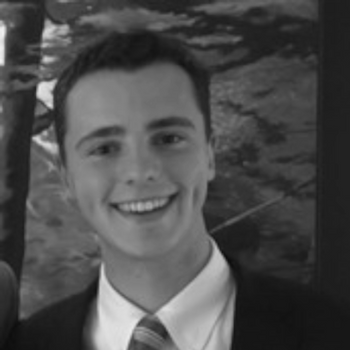Prof details 'barrage of microaggressions' from white colleagues
A Marquette University professor says she keeps a diary of “everyday microaggressions” to help her overcome her own “whiteness” in order to “recognize racism.”
“Some years ago I began recording everyday microaggressions toward learning to recognize racism, which is so often coded and which whiteness has taught me not to see,” Professor Beth Godbee, an assistant professor of English at Marquette University, writes in a May 3 post on her personal blog, “Heart-Head-Hands.”
Godbee explains that the idea “emerged from conversations with colleagues of color” who related that white colleagues often “failed to believe their experiences,” leading her to devise the project as a means of countering “epistemic injustice,” which she defines as “the problem of prejudice resulting in marginalized peoples not being believed about their own experiences.”
[RELATED: Marquette forum calls university seal a ‘microaggression’]
For context, Godbee links to a 2017 post in which notes that microaggressions can take one of three forms: a “verbal or nonverbal attack” (“microassault”); “insulting messages, rudeness, or other insensitivity” (“microinsult”); and “interactions or communications that exclude, hide, make invisible, or otherwise invalidate people or their experiences” (“microinvalidation”) [emphasis in original].
While she makes clear that microaggressions are “often unintentional,” Godbee also asserts that “microaggressions happen persistently in the lives of marginalized people,” and add up to “macro-injustices, both resulting from and perpetuating systems of inequity and oppression.”
In her latest post on the subject, Godbee asserts that “as a white woman,” she has witnessed “MUCH systemic racism” in her everyday life, but says that even she was taken aback recently by “a day that felt like a constant barrage of microaggressions.”
[RELATED: Harvard to interrogate profs accused of ‘microaggressions’]
On this particular day, she explains, “my university is reeling from white supremacist hate speech (photos circulating as clear threats against students of color) that’s drawn campus-wide and beyond-campus attention,” adding that “while hearing from students of color how little the university is responding, I see that my participation in the YWCA’s annual #StandAgainstRacism campaign has been used to give the optics that the university is responding” [emphasis in original].
Before the morning was out, she adds, “a white campus leader goes completely colorblind on a situation disproportionately impacting faculty of color,” and “another white leader says that a faculty member of color will be fine, professionally, because they’re ‘well liked,’ making clear that white folks LIKING a person of color is what determines career viability.”
That afternoon, Godbee recalls attending a panel about how “the majority of K-12 teachers are white women who play into the savior archetype” by expecting students of color to “play the victim” while viewing traits like “strength and independence” as “behavioral problems.”
Following the panel, she says a white professor boasted on social media about “how proud she is of white students (pre-service teachers) for buying school supplies for ‘underserved communities,’ playing into this savior script and celebrating altruistic charity instead of teaching ways to re-route power.”
Later that same afternoon, she recounts that a “white pre-service teacher tells a white student colleague that she’s doing an act of Othering by designing a teaching unit with literature by authors of color.” According to Godbee, the student receiving the feedback responded by “expressing concern that she might be marginalizing white authors,” which Godbee declares is “not possible.”
Before the day was out, Godbee says that some “white feminists” objected to her reference to Alice Walker in a blog post because Walker is “not vegan,” after which Godbee asserts that “a colleague of color is asked to bear emotional labor that goes uncompensated, while financial compensation is offered to white faculty/facilitators doing similar work.”
[RELATED: Prof wants colleges to pay women extra for ‘emotional labor’]
“Such a day calls attention to why a commitment to racial justice need to be actionable in everyday life, why it asks us to be in it for the long haul (not quick fixes), and why self-care and community care are so important for bolstering ourselves against the constant barrage of microaggressions.”
Godbee concludes with an appeal to others, writing, “May we—especially those of [us] who are white, who hold power and privilege within this ‘white supremacist world’—do more to name and speak out against injustice. May we do more to find humanity in the midst of dehumanization. May we do more to recognize and counter ongoing, everyday microaggressions.”
Campus Reform reached out to Professor Godbee and Marquette University for comment, but has not yet received a response. The story will be updated if a response is received.
Follow this author on Facebook: Zachary Thomas Petrizzo and Twitter: @Zach_Petrizzo

